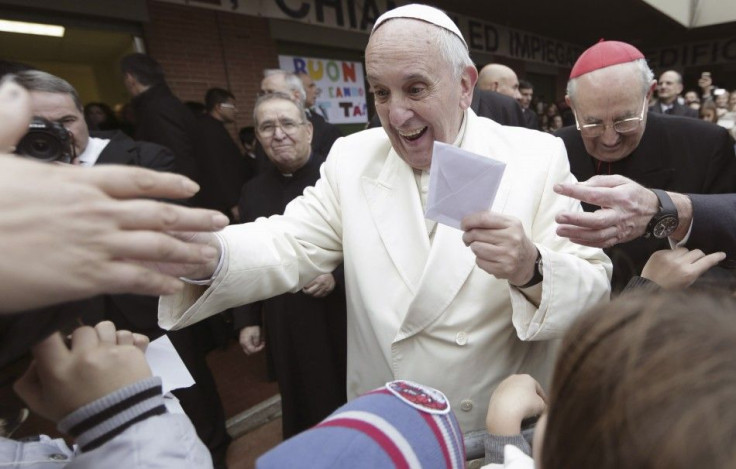Revealed: Pope Francis Is Other ‘Silent’ Hero in US-Cuba Deal

Now it can be told. Apart from Canada, the Vatican, particularly Pope Francis himself, had much of a hand to the successful breakthrough and restoration of relations between the United States and Cuba. Canada may have provided the venue, but it was the pontiff of the Roman Catholic church who ultimately touched the hearts of the two leaders to straighten things out and give peace a chance, so to speak.
It was in March 2013 when Pope Francis "meddled" into the issue between the U.S. and Cuba when Mr Obama visited the latter at the Vatican. The hour-long meeting between the two leaders mostly delved around Cuba. "Cuba got more attention than anything else they discussed," the Financial Times quoted an unidentified senior administration official.
After that momentous visit, Pope Francis took no time and wrote both leader, urging them
Mr Obama's visit to the Vatican, the Pope wrote to both presidents, urging them to settle their decades-long issues related to prisoners in both countries as well as to possibly pursue closer ties. "Pope Francis sent letters to President Obama and to Cuban President Raul Castro this past summer urging a resolution of the matter of prisoners and progress in our bilateral relationship," the US Ambassador to the Vatican, Kenneth Hackett, confirmed to Reuters.
The spiritual leader's letters, and Pope Francis' very own involvement, had provided "greater impetus and momentum for us to move forward," RT News quoted an unidentified U.S. senator. "President Obama has an enormous respect for Pope Francis, and his personal engagement was important."
But the U.S. wanted to keep private the negotiations, which took a year in the making prior to Wednesday's historic announcement. In all the 18 months of talks, Canada provided the venue.
The meeting that finally hinted such talks are going to be successful happened in November at the Vatican, when U.S. and Cuban sides, with Vatican officials as witnesses, finalised steps on the transfers of the prisoners. Also discussed were crucial steps aimed to execute immediate normalisation of relations and establishing formal diplomatic ties.
The rest, as they say, is history. On Wednesday morning, U.S. aid contractor Alan Gross, imprisoned in Cuba since 2009, boarded a U.S. government plane which had been flown in to pick him up in prison. There, he saw his wife and three U.S. congressmen, and offered a bowl of popcorn, a corn-beef sandwich on rye, and potato Latkes with sour cream and applesauce. It also signalled Francis's first major diplomatic accomplishment since becoming pope in 2013.
On the same day, the world saw both Messrs Obama and Castro on split-screen television, a rare feat actually - Obama standing beside an American flag and Castro sitting behind his desk in combat fatigues. Both announced plans to normalise relations between the two countries.
That Pope Francis came from Latin America, and its first ever pope at that, eventually pushed the Cubans to trust in the U.S. and in process of the talks. "Francis is seen in the region as someone who can talk to the US but who is sympathetic to long-held Latin apprehensions about American dominance in the region. So he is politically well-positioned as an intermediary that the Cubans can trust," Vox Media said. "The Catholic church has deep roots in majority-Catholic Cuba, even after Fidel Castro's experiment with Communist-style state atheism, and still plays a real role in politics there. As pope, Francis would have real diplomatic capital and connections within Havana."






